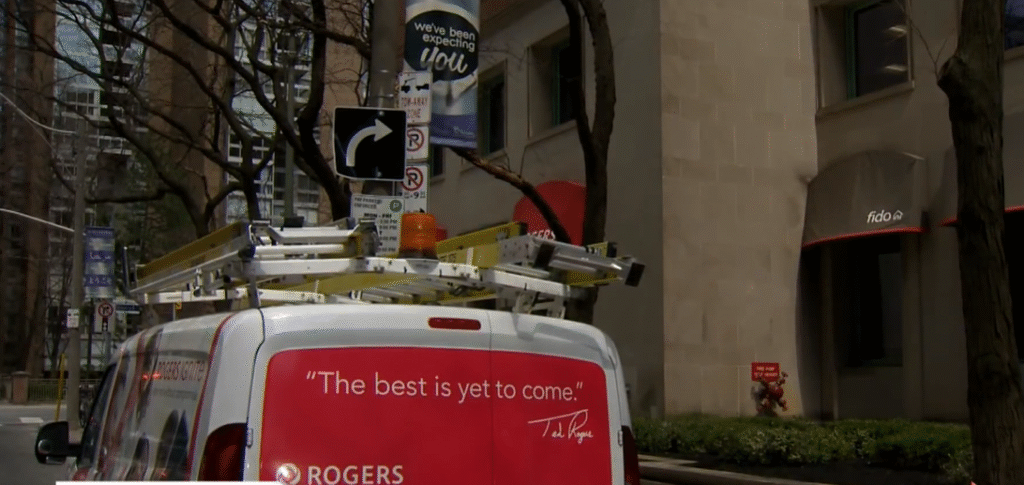The network blackout that shut down Rogers, Fido, and Chatr customers across Canada in April 2021 has grown beyond a technical glitch to become a national legal movement spearheaded by Lex Group Inc. It bears a striking resemblance to consumer revolts that have previously transformed sectors well beyond telecommunications. The loss of calls, texts, and data for millions of Canadians demonstrated how ingrained communication has become in every aspect of daily life.
The Superior Court of Quebec approved the class action, which is an especially creative response to corporate responsibility. Instead of filing separate grievances, Canadians are banding together under a single legal roof and raising their voices in opposition to a very dependable business that let them down just when they needed it most. For once, customers are using the legal system to formally express their dissatisfaction rather than merely browsing through complaints on social media.
Rogers apologized and offered a one-day service credit, blaming the outage on an Ericsson software update. Many people thought the gesture was remarkably inadequate. A single day’s credit was insufficient to make up for the lost productivity hours for gig workers and small business owners whose revenue was reliant on each notification and client call. Online merchants lost sales, delivery drivers were unable to reach clients, and innumerable Canadians were cut off from essential services. Even though it was only temporary, the breakdown felt very personal.
Case Overview Table
| Category | Details |
|---|---|
| Case Name | Rogers Fido Outage Class Action Lawsuit |
| Lead Law Firm | Lex Group Inc. (Montreal-based) |
| Defendants | Rogers Communications Inc., Rogers Communications Canada Inc., Fido Solutions Inc. |
| Date of Outage | April 19, 2021 |
| Scope | Nationwide—affecting Rogers, Fido, Chatr, and Rogers for Business subscribers |
| Main Allegations | Customers were unable to make calls, send texts, or use data due to a large-scale outage |
| Claimed Damages | Lost income, inability to contact emergency services, business disruption, and moral damages |
| Court Authorization | Superior Court of Quebec, District of Montreal |
| Opt-Out Deadline | November 23, 2025 |
| Reference Source | Lex Group Inc. |

The lawsuit’s scope is broad; unless they choose to opt out, anyone with an active Rogers, Fido, or Chatr wireless contract on April 19, 2021, is automatically included in the class. This inclusivity is very effective at guaranteeing representation and could serve as a template for consumer cases in the future digital era. Soon, the court will decide whether Rogers has to pay more than its token credit and whether its failure amounted to negligence or a duty breach.
The way the public found out about the lawsuit is especially important. Many Canadians suspected a scam right away after receiving texts regarding their eligibility. The skepticism was understandable given the rise in phishing attempts posing as major telecoms. However, the texts were real—a very obvious attempt on the part of the law firm to alert impacted clients. Ironically, justice was delivered through the same channels that had previously failed during the outage.
Additionally, the story reflects a larger corporate change. Businesses that were previously protected by monopoly and size are now directly held accountable through collective litigation. This is similar to the cultural moments when long-untouchable institutions lost power to artists, athletes, and even tech entrepreneurs. Quietly strong but fiercely loyal, Canadians are now reestablishing the balance between corporations and consumers through litigation.
Naturally, Rogers upholds its position of exercising due diligence and claims to be making significant investments to increase service dependability. Its representatives stress that they plan to vigorously defend the case and that they have already credited customers. Given that telecom credibility is based on consistency and recovery, the optimism in that statement seems strategic—possibly even required. Customers still recall that unsettling quiet, though, when digital banking stopped working and phones were unable to contact 911 operators.
The work of the Lex Group is a movement rooted in common experience rather than just legal documentation. The firm has turned anger into agency by transforming group frustration into organized legal momentum. Their strategy, which combines legal accuracy with public involvement, is especially creative. Since there is no cost to participate, the process is surprisingly accessible and promotes a democratic sense of grassroots justice.
To put things in perspective, the 2021 incident occurred before the even more significant Rogers outage in July 2022, which severely damaged government systems, hospitals, and ATMs. Concerns regarding Canada’s telecom resilience were heightened by that incident. When networks turn into national lifelines, a disruption becomes more than a technical issue; it becomes a public emergency. Therefore, the ongoing lawsuit may have an impact on regulatory frameworks, influencing legislators to call for backups, redundancies, and quicker public outreach during outages.
Customers no longer view themselves as helpless subscribers but rather as stakeholders who demand dependability, which is what makes this lawsuit so powerful. Even though it moves slowly, the legal system itself makes it clear to any company in charge of vital infrastructure that failure now has consequences in terms of money, reputation, and morality.

